
THE VOICE OF INTERNATIONAL LITHUANIA
|
VilNews has its own Google archive! Type a word in the above search box to find any article.
You can also follow us on Facebook. We have two different pages. Click to open and join.
|
News
Choice Hotels to Lithuania
- Posted by - (0) Comment

A hotel that has been started to rise near Vilnius old town in June has found an operator. Selvaag, the developer of the new economy-class hotel, signed a long-term contract on the management of the hotel with Nordic Choice Hotels.
The hotel will have 200 economy-class rooms. The total value of the project is estimated to be about 30 million litas (8.7 million euros), 25% of the amount being covered by EU structural funds.
The hotel expects to greet its first client by the end of 2012. NordicChoice Hotels currently runs 170 hotels in Scandinavia and the Baltic states under a franchising agreement with Choice Hotels International.
In the global hotel group rankings by MKG Hospitality, Choice Hotels International is ranked sixth among ten largest hotel groups worldwide, including Intercontinental Hotels Group, Hilton Worldwilde, Marriott International and Accor.
http://www.baltic-course.com/eng/good_for_business/?doc=42779
- Bookmark :
- Digg
- del.icio.us
- Stumbleupon
- Redit it
![]()

Eastern European support for democracy has been eroded by the global financial crisis, which cut living standards, a survey by the European Bank for Reconstruction and Development and the World Bank showed.
Backing for democracy as a preferable political system fell last year in 18 of the 29 former communist countries where the EBRD invests, compared with a previous survey in 2006, the London-based lender said in a report today. In 11 nations, less than 50 percent of the respondents "clearly" prefer democracy, the survey showed.
"Of these, Latvia, Lithuania and Romania experienced particularly sharp economic contractions during the crisis," the report said. "This could explain their lower support levels for a market economy, but it scarcely provides a reason for the declining preference for democracy."
All of the Eastern European economies are growing for the first time since 2008 after being the worst hit among emerging markets by the global credit crunch with inflows of investments and credit drying up.
Read more at:
http://www.bloomberg.com/news/2011-06-29/eastern-europe-support-for-democracy-slips-in-crisis-poll-shows.html
- Bookmark :
- Digg
- del.icio.us
- Stumbleupon
- Redit it
- Posted by - (0) Comment
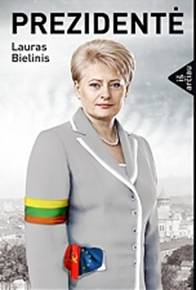
A new book, laconically called "President" by political scientist Lauras Bielinis will reach the Lithuanian bookstores this weekend. The book's controversial cover alone raises no doubts that the man figure of the monograph is incumbent head of state Dalia Grybauskaite.
However, Bielinis' book is not a political biography dedicated to mark the upcoming two years anniversary since Grybauskaite assumed president's seat, informs LETA/ ELTA,referring to Lietuvos zinios.
The book is rather a subjective analysis of the president's key policies, principles of governing and the representation of them to the society. Bielinis said he did not know Grybauskaite personally:
"In fact, I have not even met her in a corridor, however, this does not interest me at all: I have distanced myself from all personal, individual characteristics and biographical things which do not have any influence on her policies. As the author says, "the aim of the book is to show how a political leader acts and takes part in the national politics, therefore th e main source was the actions of the president herself, her speeches, actions, decisions, society and political arena's reaction to what she is doing".
Source:
http://www.baltic-course.com
- Bookmark :
- Digg
- del.icio.us
- Stumbleupon
- Redit it
Hillary Clinton to Lithuania this week
- Posted by - (1) Comment
![]()

US Secretary of State Hillary Clinton will this week visit Hungary and Lithuania as part of a tour focused on promoting human rights and democracy.
Clinton will be in Budapest for the opening of the Lantos Institute, named after Tom Lantos, the Hungarian-born Holocaust survivor and outspoken global human rights advocate who died in 2008.
The event "is an opportunity to reinforce our commitment to pluralism," said Tomicah Tillemann, a senior advisor for civil society and emerging democracies.
The top US diplomat will also meet with Hungarian Prime Minister Viktor Orban and Foreign Minister Janos Martonyi as Hungary's right-wing government comes under fire over the direction it has been taking the country.
On the 30th of June 30 Clinton will travel to Vilnius for the Community of Democracies ministerial meeting that will bring together senior government officials, parliamentarians, non-government organizations, women and youth leaders and the private sector.
Their aim will be "to advance the shared goals of strengthening civil society and support emerging democracies," State Department spokeswoman Victoria Nuland said in a statement.
She will also meet President Dalia Grybauskaite, Prime Minister Andrius Kubilius and other Lithuanian officials, Nuland said.
In the runup to the ministerial meeting, Tillemann said, there will be a meeting to help 85 civil society activists from Belarus and other countries in the region to learn how to use technology better to advance their aims.
Earlier this month US President Barack Obama extended sanctions on Belarus over its violent suppression of protests and arrest of opposition figures in the wake of December's disputed elections.
- Bookmark :
- Digg
- del.icio.us
- Stumbleupon
- Redit it
- Posted by - (0) Comment
Chess:
Viktorija Čmilytė from Šiauliai wins European Women Championship
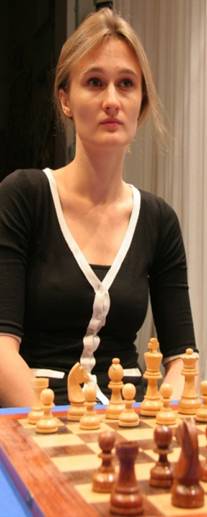
Photo: www.siauliai.lt
Lithuanian Viktorija Čmilytė (born 6 August 1983 in Šiauliai) has won the European Women Championship in Tbilisi, Georgia. The grandmaster finished clear first with a score of 9 out of 11. Former World Champion GM Antoaneta Stefanova of Bulgaria took the silver medal with 8.5/11 while GM Elina Danielian of Armenia edged out IM Svetlana Matveeva (Russia) on tie-break to win bronze.
The 12th European Individual Women’s Championships took place 6-18 May 2011 in Tbilisi. It was organized by the Georgian Chess Federation, under the auspices of the Tbilisi City Hall and the European Chess Union. The tournament hall was in the Sheraton Metechi Palace Hotel of the Georgian capital.
The tournament was open all female players representing the federations which comprise the European Chess Union (FIDE zones 1.1 to 1.10) regardless of their title or rating. There was also no limit of participants per federation.
The championship was an 11-round Swiss. The rate of play was 90 minutes for 40 moves plus 30 minutes for the rest of the game with an increment of 30 seconds per move, starting from move one.
Viktorija Cmilyte had an excellent start and won her first five games. By then she was leading by a full point, but in the next round she lost to Antoaneta Stefanova. Eventually this would be her only loss.
After an easy win against Russian IM Marina Romanko and a draw with Black against IM Bela Khotenashvili, some crucial games followed. Cmilyte beat two experienced grandmasters in a row: Pia Cramling with White and Ketevan Arakhamia-Grant Ketevan with Black. Two quick draws on the top boards in the final round meant that, the Lithuanian lady kept her sole lead in the final standings.
- Bookmark :
- Digg
- del.icio.us
- Stumbleupon
- Redit it
- Posted by - (0) Comment
Washington Post:
Baltic countries hold a lesson for Greece in crisis

As Greece’s anguish spills into the streets, three small Baltic countries may offer an example, if not a model, of how to survive an economic crisis through austerity measures.
After suffering the deepest recession in Europe during the global financial crisis, Latvia, Lithuania and Estonia swallowed the bitter medicine that Greece is now being asked to take.
Painful cure
They slashed pensions, welfare benefits and public sector salaries while raising taxes. Latvia, which came dangerously close to bankruptcy, had to fire thousands of public servants and close schools and hospitals.
It was painful, but the cure worked. Battered and bruised, the three former Soviet republics are now on a path to recovery. Latvia’s budget-cutting government even won re-election last year.
“Latvia has a lot of lessons for Greece, but they are all coming too late,” said Morten Hansen, head of the economics department at the Stockholm School of Economics in Riga.
The main lesson: Push through austerity measures quickly before public support ebbs out.

Morten Hansen, head of the economics department at the Stockholm School of Economics in Riga.
“You can have that support for some time, but not three-four years,” he said. “Now people are starting to get more unhappy (in Latvia), but now the worst is over.”
Protests in Greece, where anti-government demonstrations are more common than in Northern European countries, have taken on new momentum. There is a constant sit-in in the central square in Athens and violent clashes with police have become a regular occurrence.
In the Baltic countries, which for decades suffered under a brutal Soviet occupation, the fiery Greek protests have been met with some bemusement. Besides a couple of clashes in Riga and the Lithuanian capital, Vilnius, in 2009, the Baltic countries didn’t see any street violence.
Cultural differences
“For me it comes down to some cultural differences — we just understand the world differently. We accept the cuts, are not happy with them, especially those who suffer from it directly, but we understand why we have to do that,” said Marge Tubalkain-Trell from Estonia, who lost her job and had trouble getting the medical care she needed because of crisis-related social cuts.
Deimante Doksaite from Lithuania, which narrowly avoided having to take its own bailout during the crisis, agreed.
Greeks are spoiled
“Greeks are spoiled. Being quiet helped us to deal with the crisis,” said Doksaite, who lost her job as a media relations officer when the crisis struck.
Greece has already implemented austerity measures to meet the conditions of a €110 billion ($158 billion) bailout from Europe and the International Monetary Fund. But it has struggled to meet many of its targets, and is now in negotiations for a second bailout. The government faces a crucial vote next week for a new round of austerity measures.
The parallels with Latvia are striking.
In 2009 Latvia was nearing default, with over 300 percent more maturing foreign debt than reserves. Many speculated it would have to abandon its currency peg to the euro.
Latvia was the hardest hit country in the world
According to the IMF, Latvia was the hardest hit country in the world by the economic crisis, with an overall decline in gross domestic product of around 25 percent. Unemployment reached nearly 23 percent while foreign investment dropped to almost zero.
- Bookmark :
- Digg
- del.icio.us
- Stumbleupon
- Redit it
Euro is “not something to kill yourself over”
- Posted by - (0) Comment
![]()

Vitas Vasiliauskas, Chairman of the Bank of Lithuania
Adopting the euro is "not something to kill yourself over," says Lithuania's central bank governor. It's a common sentiment in the region.
First join the European Union, then qualify for the euro. That was the path laid out for the countries of Eastern Europe that wanted to weld themselves to the West. Euro membership proved that a country had the discipline to join one of the world's most exclusive clubs.
The Greek crisis has slowed the rush to join. On June 7, Latvia's central bank governor, Ilmars Rimsevics, said the euro shouldn't be introduced in his country "at any price." His Lithuanian counterpart, Vitas Vasiliauskas, said two days later that the goal of adopting the euro in three years is "not something to kill yourself over."
Read more at:
http://www.businessweek.com/magazine/content/11_27/b4235017725502.htm
- Bookmark :
- Digg
- del.icio.us
- Stumbleupon
- Redit it
Lithuanian Parliament approves 120 million compensation for alienated Jewish property
- Posted by - (0) Comment
![]()
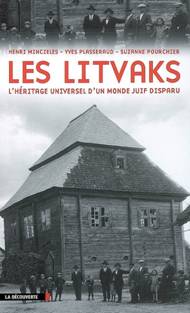
Lithuania's parliament (Seimas) on Tuesday approved the decision to pay 128 million litas (over 37 million euros) in the next 10 years to compensate Jewish people for their property alienated by totalitarian regimes.
82 MPs voted for the adoption of bill on Good Will Compensation for Real Estate of Jewish Religious Communities, 7 were against and 16 members of the Lithuanian parliament abstained.
The compensation will be paid in 2013-2023 and used for religious, cultural, health, sports, educational and scientific goals of Lithuanians Jews in Lithuania. A one-off sum of 3 million litas will have to be used to support people of Jewish nationality who lived in Lithuania and suffered from totalitarian regimes during the period of occupation.
Under the adopted bill, the compensation will be transferred to a special fund the governing body of which would represent the Jewish Community in Lithuania, the Religious Jewish Community of Lithuania and other Jewish religious, health, cultural and education organizations.
- Bookmark :
- Digg
- del.icio.us
- Stumbleupon
- Redit it
![]()

The Great Synagogue in Vilnius was partly destroyed by the Germans during World War II. The ruined synagogue and the whole “schulhof” complex which had grown around it were demolished by the Soviet authorities from 1955 to 1957 and were intentionally replaced by a basketball court and a kindergarten to effectively prevent any future initiatives to rebuild a cultural monument.
- Bookmark :
- Digg
- del.icio.us
- Stumbleupon
- Redit it
UK visitor numbers to Lithuania up 21%
- Posted by - (0) Comment

Lithuania, host of the first joint AITO tour operators and agents annual conference, is hoping budget airlines will offer more direct flights from the UK this winter following a rapid increase in the number of visitors to the Baltic state.
Visitor numbers from the UK, Lithuania's sixth largest market, were up 21% in the first quarter of this year and overall visitor numbers were up 39% on the same period of last year.
In April, low-cost carrier Wizz Air launched a five-times-a-week service from Luton and two flights a week from Doncaster to the capital city Vilnius.
In May, Ryanair launched a daily service from Stansted to Vilnius, which it operates alongside its flights from seven UK airports to Lithuania's second city, Kaunas.
"We are hoping that Wizz Air will increase its Luton service to daily from this autumn and that there will be more Ryanair flights," said Augusta Jaudegyte of the Lithuania National Tourism Office.
In total, Lithuania attracted 1.5m tourists last year, a 10% rise on the previous year when visitor numbers plunged due to the worldwide economic crisis.
"Some hotels were almost empty in 2009," said. Jaudegyte. "A lot of new hotels opened before the crisis, but 30% to 50% of the rooms were empty so we have a lot of room for growth."
Prior to the launch of direct flights, the former Soviet state was struggling to appeal to UK travellers, possibly due to a lack of awareness of its rich heritage, its countryside and its beaches.
Read more at:
http://www.travelmole.com/stories/1148135.php
- Bookmark :
- Digg
- del.icio.us
- Stumbleupon
- Redit it
- Posted by - (0) Comment
Lithuania marks 70th anniversary of Stalin-era deportation
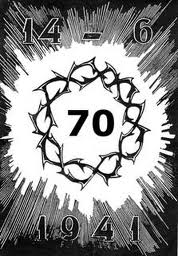
A minute of silence was observed on Vilnius' central Freedom Square Tuesday in tribute to the 70th anniversary of the start of Soviet-era deportations in Lithuania.
On 14 June 1941, mass deportations started in Latvia, Lithuania and Estonia, targeting former members of nationalist parties, police officers, landowners, businessmen, and "criminal elements engaging in anti-Soviet activities and spying for foreign intelligence services."
These people were subject to arrest, property confiscation and imprisonment in labor camps for terms of five to eight years and subsequent relocation to remote parts of the USSR for 20 years.
Addressing a memorial service, President Dalia Grybauskaite described the deportations as a "planned genocide of the people."
A total of 203,590 people were deported from the Baltic republics, including 118,599 from Lithuania between 1940 and 1953.
- Bookmark :
- Digg
- del.icio.us
- Stumbleupon
- Redit it
![]()

By U.S. Rep. Dan Burton (R-IN) in
www.huffingtonspost.com
While the world witnessed the nuclear meltdown at Japan's Fukushima Daiichi power plant in March and remembered the 25th anniversary of the Chernobyl disaster in April, a new nuclear power plant set for construction this fall on former Soviet territory raises alarm at how little has been learned.
What set Chernobyl apart from Fukushima more than anything else was the way the closed Soviet regime responded to the disaster, remaining in denial for weeks that a catastrophe was unfolding. The same could occur in Belarus, which is currently ruled by an autocratic leader who falsified his own reelection last December. Belarus and Russia's mishandling of the proposal to build a reactor near Astraviec, a town in western Belarus, is a warning sign the West should not ignore. Again, we see the potential lack of transparency, international coordination, and communication.
Yet the United States did not object when, only weeks ago, Russia's state-owned nuclear power company, Rosatom, signed a deal with Belarusian President Aleksander Lukashenko. It is still unclear to the governments of neighboring countries what criteria Belarus used in selecting the location of the plant -- a mere 14 miles from Lithuania's border and barely 30 miles from Vilnius, its capital and economic and population hub. Prime Minister Andrius Kubilius and other Lithuanian officials have highlighted the failure of the Belarusian authorities to make a credible attempt to answer safety concerns in required environmental impact statements. "We didn't get proper answers or a proper discussion," noted Kubilius.
Belarus' unwillingness to have meaningful consultations with its neighbors is alarming. These countries, once under the Soviet yoke, now belong to the World Trade Organization, the North Atlantic Treaty Organization and the European Union. And they are now close American allies. The Obama Administration has stated that they agree with Congress that it is in our and Europe's best long-term interest to increase energy security and diversification. However, the optimal way to add to the region's energy independence is to create new, clean energy sources, not to continue to rely upon the shaky assurances of throwback regimes.
Transparency delivers best solutions. I have long been in favor of safe nuclear power as one component of a diversified strategy that will secure greater energy independence while reducing the fuel costs to American families. Brussels is well advised to pursue a similar goal so that its citizens will one day no longer be dependent on the energy goodwill of the Kremlin, which has proven an unreliable supplier time and time again. Between Astraviec and a reactor already under construction to Lithuania's immediate west in Kaliningrad, Russia again demonstrates its intention to solidify its regional energy monopoly, this time that, if unchecked, will ultimately drive Eastern Europe to again become politically subservient to Moscow-- a grave fate that the West must not allow.
This opaque agreement should have sent off alarms at the State Department. Instead, Foggy Bottom has given Lukashenko, whose beleaguered nation is on the brink of financial ruin, a green light to build his reactor, never mind the acute environmental worries or how this may further entrench Europe's energy dependence on undemocratic suppliers.
Both Secretary Clinton and I will visit Lithuania later this month. It is my hope that she will reconsider this disconcerting approach before arriving in Vilnius, as our Baltic allies deserve better. We should strongly echo Eastern Europe's concern and join the opposition led by Kubilius. We too should protest the international legal framework violations that Belarus and Russia are committing with their plans to build the nuclear power plant in Astraviec, with little to no regard to their next-door neighbor's concerns.
Last December, the U.S. Envoy for Eurasian Energy, Richard Morningstar, called for implementing this project "on a competitive, commercial basis and in full compliance with European and IAEA standards." So far, the planned nuclear power plant in Belarus does not fit the bill. Until its proponents comply with all provisions of the United Nations Convention on Environmental Impact Assessment in a Transboundary Context, the Convention on Nuclear Safety of the International Atomic Energy Agency and other international legal acts, the United States and the international community should strongly oppose this endeavor.
In the memory of all those who suffered in the Chernobyl accident 25 years ago, Russia and Belarus must be made to understand: the world is watching.
U.S. Rep. Dan Burton (R-IN) is a senior member of the House Foreign Affairs Committee and is the Chairman of the Subcommittee on Europe and Eurasia.
- Bookmark :
- Digg
- del.icio.us
- Stumbleupon
- Redit it
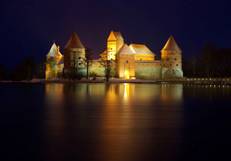
Lithuania's tourism business has exceeded projections in the first quarter pf 2011 and even beat records in some sectors, the Lithuanian State Department of Tourism (VTD) said. Over the Q1 of 2011, the number of tourists in Lithuania grew by 39.4% year-on-year.
Over January-March last year, 107,000 tourists stayed in Lithuanian commercial accommodation establishments, while this year the number went up to 150,000. The tourist traffic is reported to have increased from the tourism markets of great importance to Lithuania, writes LETA/ELTA.
Over the Q1, the largest increases were recorded in the numbers of tourists coming from Russia (61%), Belarus (53%), Poland (28%), Germany (31%), Estonia (34%), Great Britain (21%), Norway (57%), the Netherlands (34%), Belgium (31%) and the U.S. (68%). The growth in tourist numbers from Finland by 85% and from Spain by 71% made a pleasant surprise, VTD Head Dr Raimonda Balniene said.
Kaunas earlier received an award from the popular Spanish travel magazine QTravel as the most attractive destination in 2010. In the Q1, the largest number of tourists came from Ukraine. The growth in the tourist traffic from the country reached as much as 104%.
The 7.6-% growth in the local tourism is also good news to the tourism sector as it hardly stood at 1% in 2010.
Source:
http://www.baltic-course.com/eng/good_for_business/?doc=41734
- Bookmark :
- Digg
- del.icio.us
- Stumbleupon
- Redit it
Booming tourism in Kaunas this year!
- Posted by - (0) Comment
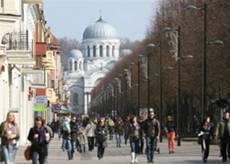
Kaunas, the second largest city in Lithuania, has brushed aside its reputation as a European backwater in recent months, with tourism in the city literally booming since the introduction of low-cost flights to the city last year.
With the boom in tourism, other areas of Kaunas’ economy have started to pick up too, including retail, construction and more, revitalizing this charming city and spurring renewed vigour into its development.
The growth in these sectors is attributed directly to the increasing number of foreign visitors, says the city’s mayor Rimantas Mikaitis. Since Irish-based low-cost carrier Ryanair started operating flights to Kaunas in 2010, the city has been resurrected from the point of collapse, he explains.
Read more:
http://www.argophilia.com/news/kaunas-booming-tourism/22847/
- Bookmark :
- Digg
- del.icio.us
- Stumbleupon
- Redit it
Members of the European Parliament commemorate the 1941 deportations from the Baltic States
- Posted by - (0) Comment

Latvian MEP Roberts Zile urges the European Commission to carry out investigations into the deportations of Balts by the USSR during and after WWII
Members of the European Parliament commemorated the 1941 deportations from the Baltic States during a statement from president European Parliament President Jerzy Buzek on 6 June 2011.
14 June marks the 70th anniversary of the mass deportation of thousands of people who were exiled to Siberia during Soviet rule.
More than 30,000 people from Estonia, Latvia and Lithuania were sent to prison camps under the orders of Joseph Stalin.
Tunne Kelam, an Estonian MEP, highlighted the deep psychological trauma experienced by the victims, while Latvian MEP Roberts Zile urged the European Commission to carry out an investigation into the deportations.
The Baltic republics regained their independence from the Soviet Union 20 years ago and joined the European Union in May 2004.
- Bookmark :
- Digg
- del.icio.us
- Stumbleupon
- Redit it
Lithuania to raise pension age to 65 by 2026
- Posted by - (0) Comment
![]()

Lithuanian lawmakers have decided to gradually raise the pension age to 65 to improve the country's public finances.
The Lithuanian parliament approved the plan Thursday in a 60-42 vote, where 12 lawmakers abstained from voting.
The current age for retirement is 60 for women and 62 and a half for men. The new plan means the pension age will be raised by two months a year for men and four months a year for women to reach 65 for both by 2026.
The decision follows similar moves across Europe, where countries have been forced to cut spending to bring down public debt.
Source:
http://www.businessweek.com/
- Bookmark :
- Digg
- del.icio.us
- Stumbleupon
- Redit it
VilNews e-magazine is published in Vilnius, Lithuania. Editor-in-Chief: Mr. Aage Myhre. Inquires to the editors: editor@VilNews.com.
Code of Ethics: See Section 2 – about VilNews. VilNews is not responsible for content on external links/web pages.
HOW TO ADVERTISE IN VILNEWS.
All content is copyrighted © 2011. UAB ‘VilNews’.

 Click on the buttons to open and read each of VilNews' 18 sub-sections
Click on the buttons to open and read each of VilNews' 18 sub-sections 















.jpg)



